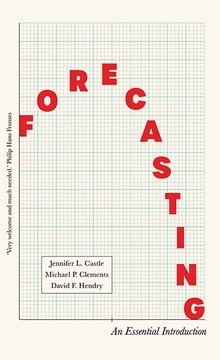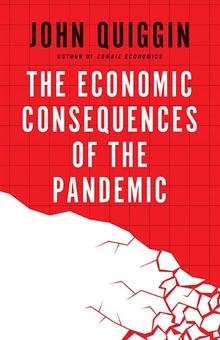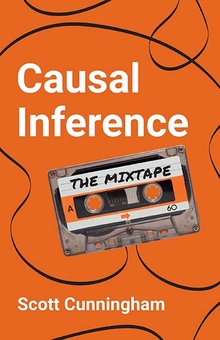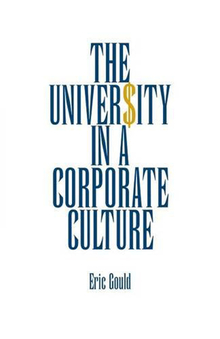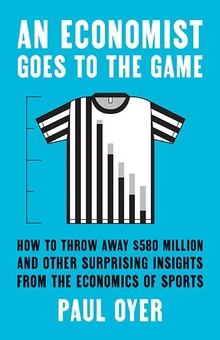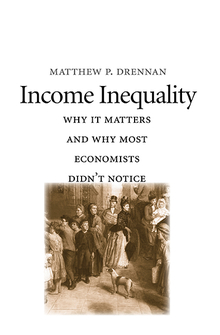Forecasting
WARNING
You are viewing an older version of the Yalebooks website. Please visit out new website with more updated information and a better user experience: https://www.yalebooks.com
An Essential Introduction
Jennifer Castle, Michael Clements and David Hendry
Concise, engaging, and highly intuitive—this accessible guide equips you with an understanding of all the basic principles of forecasting
Making accurate predictions about the economy has always been difficult, as F. A. Hayek noted when accepting his Nobel Prize in economics, but today forecasters have to contend with increasing complexity and unpredictable feedback loops. In this accessible and engaging guide, David Hendry, Michael Clements, and Jennifer Castle provide a concise and highly intuitive overview of the process and problems of forecasting. They explain forecasting concepts including how to evaluate forecasts, how to respond to forecast failures, and the challenges of forecasting accurately in a rapidly changing world.
Topics covered include: What is a forecast? How are forecasts judged? And how can forecast failure be avoided? Concepts are illustrated using real-world examples including financial crises, the uncertainty of Brexit, and the Federal Reserve’s record on forecasting. This is an ideal introduction for university students studying forecasting, practitioners new to the field and for general readers interested in how economists forecast.
Making accurate predictions about the economy has always been difficult, as F. A. Hayek noted when accepting his Nobel Prize in economics, but today forecasters have to contend with increasing complexity and unpredictable feedback loops. In this accessible and engaging guide, David Hendry, Michael Clements, and Jennifer Castle provide a concise and highly intuitive overview of the process and problems of forecasting. They explain forecasting concepts including how to evaluate forecasts, how to respond to forecast failures, and the challenges of forecasting accurately in a rapidly changing world.
Topics covered include: What is a forecast? How are forecasts judged? And how can forecast failure be avoided? Concepts are illustrated using real-world examples including financial crises, the uncertainty of Brexit, and the Federal Reserve’s record on forecasting. This is an ideal introduction for university students studying forecasting, practitioners new to the field and for general readers interested in how economists forecast.
David Hendry is professor of economics, Oxford University and director of economic modelling, Institute for New Economic Thinking. Michael Clements is professor of econometrics, Henley Business School. Jennifer Castle is tutorial fellow, Oxford University and research fellow at Institute for New Economic Thinking.
"Very welcome and much needed." — Philip Hans Franses
"A tidy and beautiful introduction to opportunities, pitfalls, and new directions in economic forecasting, reflecting the distilled wisdom of researchers at the frontier of their field." — Professor Francis X. Diebold, author of Elements of Forecasting
"It's a topsy-turvy world, but we all must have a view on where it is headed: from the business owner hiring a new employee to the renter becoming a homeowner. Of course, there are accurate forecasts and off-base ones. Forecasting may not turn you into Warren Buffet, but it will ensure that you avoid a forecasting blunder." — Mark Zandi, Chief Economist of Moody's Analytics and author of Financial Shock and Paying the Price
“As an introduction to forecasting for those interested in how economists typically think about forecasting, this book is excellent. Although framed as a non-technical introduction to forecasting, even experienced forecasters and econometricians would find joy in reading it.”—Leif Anders Thorsrud, Economic Record
ISBN: 9780300244663
Publication Date: June 11, 2019
Publication Date: June 11, 2019
240 pages, 5 1/2 x 8 1/2
62 figs
62 figs

